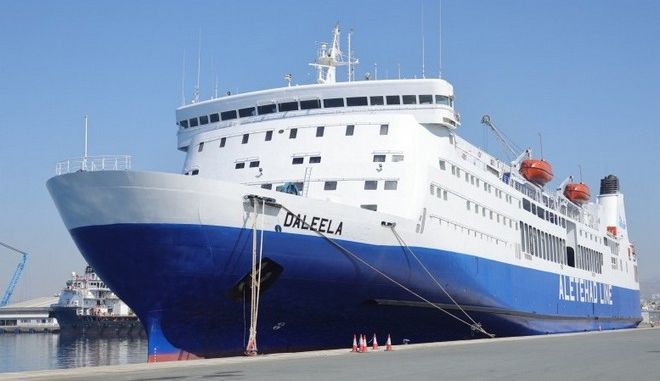President Christodoulides commented about cooperation between Cyprus and other EU member states, particularly Greece, for establishing a European Commissioner and, by extension, a Directorate General that will deal exclusively with shipping.
This is a positive initiative, which has also been the position of the shipping industry at times.
However, some realities should be evaluated, including the degree of difficulty and alternatives, especially if this proposal does not gather the necessary support.
Over time, shipping has fallen under the respective Transport Commissioner and the Directorate-General for Transport and Mobility (DG-MOVE).
During the last 20 years, DG Transport’s responsibilities have gradually shrunk due to important EU policies and priorities requiring horizontal approaches.
In essence, there is a fragmentation of responsibilities in shipping matters, with the most critical issues, such as decarbonisation and state aid in the maritime transport sector, falling under the competence of other Commissioners.
Elevating a sector to the point of justifying a separate portfolio requires a convincing argument that it has an essential role to play in developing and reinforcing EU policies.
There are precedents, such as the appointment of the Commissioner for Maritime Affairs (but in the same portfolio as Fisheries) during the first Barroso term (2004-09), with first the Maltese Commissioner Joe Borg and then, in the second Barroso term (2010-14), with the Greek Commissioner Maria Damanaki.
This decision resulted from President Barroso’s strong political will to highlight the need to formulate an integrated EU maritime policy, which he had successfully shaped at the national level during his years as Prime Minister of Portugal.
The whole effort was “tied” with the then EU policies for sustainable development and subsequently with the need to create development and employment from maritime activities as part of the then “Europe 2020” Strategy.
Another example of creating a separate portfolio is climate change.
Until 2014, climate issues were a small part of the DG Environment.
The fact that global warming made the need for action immediate and imperative led the EU to create a Directorate-General dedicated to climate change.
For the Cypriot proposal to have added value, it must ensure that all issues concerning shipping will be brought together under one Commissioner and a Directorate General for shipping.
This is an extremely difficult endeavour if one considers that the Commission’s structure has been designed based on EU political priorities in recent years, built through various sectoral and thematic clusters that approach policy-making and legislative initiatives horizontally (see Green Deal – “Fit for 55”).
Supply chain
The EU approaches shipping as part of the wider supply chain.
For most member states and European officials, shipping is not a prominent activity contributing to the economic development of the EU, as the main lifeblood of the EU’s import and export trade, but as a means of transport.
There are dozens of examples of how the Commission manifests legislative initiatives or decides on burning issues affecting the sector.
A recent example was our proposal for compensatory measures to support the European shipping sector from the impact of sanctions against Russia.
Proposals touched on aspects far beyond transport, such as external commercial relations and competition, but did not find a corresponding response precisely because of the above philosophy and the fragmentation of maritime issues.
It is necessary to change the philosophy with which shipping is treated, and this is where the difficulty of any venture to create a separate portfolio lies.
President Christodoulides rightly identifies the problem in that the EU needs to give the required importance to the geostrategic role and importance of shipping.
To improve the image and the perception of the regulators at the global and European level and to upgrade the role of shipping, it is necessary to have a long-term strategic plan, a reliable approach and attitude in the formulation of the various EU policies, national initiatives and interventions that will place shipping in its proper dimension.
Our national strategy for shipping, “SEA Change 2030”, is in this direction, which promotes the extroversion that the sector needs to improve its image, to communicate its correct dimension and sustainable actions to secure the geostrategic place it deserves.
The degree of difficulty for the success of such a venture is extremely high.
President Christodoulides and his counterparts should submit alternative proposals so that any positive initiative does not backfire.
I suggest two alternative approaches.
Proposal ‘A’
Shipping as the driver of trade and the European economy should be part of the Trade Commissioner’s portfolio.
This way, the sector will have a prominent place in the EU’s foreign policy and the EU’s trade relations with third countries, resulting in efforts to safeguard the interests and ensure better conditions for European shipowners when their ships approach third-country ports.
This was part of the last proposal we submitted during the Anastasiades administration.
Other aspects of shipping that are important to maritime states such as Cyprus, Greece, and Malta also need to be highlighted.
The argument that shipping overwhelmingly serves commerce and not the passenger public, as opposed to other means of transport focusing on passenger transport, could support this alternative.
Proposal ‘B’
Alternatively, shipping could be included in the EU’s integrated maritime policy portfolio.
In the current composition of the European Commission, this portfolio includes oceans, fisheries, and broader environmental issues.
With this choice, shipping will have a more active and significant role in the wider Blue Economy and the EU’s development perspective stemming from the seas and oceans.
With this alternative, conditions and perspectives can be created to ensure, utilise, and absorb more financial resources from the shipping industry to effectively address the challenges of the green transition.
In conclusion, the proposal to add value must be followed up with coordinated outward-looking policies and actions highlighting the importance of shipping, far beyond EU transport policy, to cultivate a different culture and philosophy for shipping from the 13th floor of Berlaymont to the 27 EU member state capitals.
By Vassilios Demetriades, former Deputy Minister of Shipping and, for years, coordinator of the Maritime Transport Strategy and external maritime relations of the EU at the European Commission
https://vassiliosdemetriades.com/










